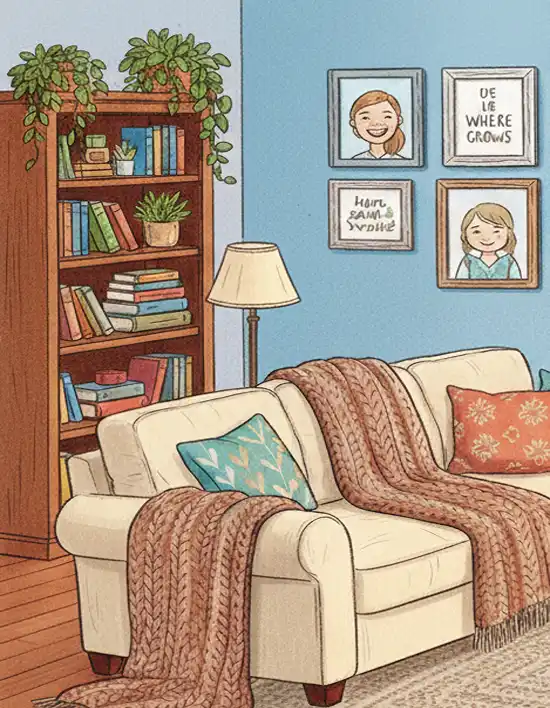Educational and Cultural Trips You Can and Should Take With Your Kids
Traveling with your children can seem like something of a hassle. Instead of relaxing and getting to enjoy the free time, you have to make sure that they’re entertained, that they don’t injure themselves, don’t wander off, and don’t eat something that could give them an allergic reaction.
However, family trips can be a wonderful opportunity to bond, as well as serve as an interactive educational experience that children of all ages will definitely be interested in. If you’re thinking about having a trip like that the next time you go on vacation, here are some of the locations that you need to add to your bucket list.
Vietnam
Vietnam is an incredibly diverse and culturally rich country full of ancient history and unique traditions. The thing that makes it incredible is its ability to blend culture with adventure. The sights here are unlike anything else in the world, so you’ll definitely want to get a Holafly eSIM for Vietnam before you leave. Having a seamless internet connection anywhere you are, and the ability to share pictures you see with everyone back home instantaneously, is a great advantage that allows you to keep up and feel more connected even when you’re far away from home. On top of that, you get the convenience of keeping your own phone number, and there’s no plastic waste to worry about.
Visiting the Mekong Delta will provide you with a glimpse into the country’s rural life, being one of Vietnam’s most important fishing regions, and having almost 3 million hectares used exclusively for agriculture. If you’ve never visited a floating market before, you can do so here. The Mekong Delta is also very important for sustainability and biodiversity. The Laotian rock rat, a member of a family believed to have been extinct for around 11 million years, was recently rediscovered in an unexplored area in the region. The coastal geography makes the delta vulnerable to climate change and rising sea levels, as well as saltwater intrusion and coastal erosion.
You can also try trekking through Sa Pa, go on bike rides through Hội An and Ninh Bình, and cruise along Halong Bay for three days, with an itinerary that includes cave visits, kayaking, and stopping in several fishing villages.
Iceland
If you want to visit a place that combines education with visits in nature, there’s no better place for it than Iceland. The Perlan natural history museum in Reykjavík is the kind of place that any child will love to visit. Since it is located at the top of a hill, it provides an incredible panoramic view over the capital city and its surrounding areas, including the mountains and the Atlantic. The museum’s planetarium includes exhibitions about the Northern Lights, taking you on a journey across the solar system alongside stunning Icelandic landscapes.
Wonders of Iceland includes interactive geysers, glaciers, animals, birds, volcanoes, and a replica of the Látrabjarg cliff. The LAVA Centre in Hvolsvöllur explains the intricacies and inner workings of earthquakes and volcanoes. Then there’s the Sage Museum for those who love literature, a place that recreates key moments from Icelandic and Viking legends and ancient history.
Most Old Norse sagas were written and preserved in Iceland, and although some of the stories come from Scandinavia, it was the prolific Icelandic scholars, writers, and poets who began writing them down. Whales of Iceland, which opened in 2015, educates visitors about the cetaceans that have been sighted in the country’s waters throughout its history and includes several life-sized models.
FlyOver Iceland will take you on a simulated flight over Iceland’s most dramatic landscapes, while the Katla UNESCO Global Geopark offers geology lessons alongside glacier views and black sand beaches.
Italy
Italy is one of the most popular tourist destinations in the world, and it’s not difficult to see why. Home to numerous World Heritage Sites, an incredible cuisine that is pretty much universally loved, diverse landscapes, and a lot of history, Italy truly is one of a kind. The dolce vita lifestyle, which focuses on the beauty of being alive, enjoying the present, your connection to other people, and simple things such as good food and the chance to see an incredible landscape, is a good philosophy to share with your children as it is linked to increased wellness, lower stress levels, and overall improved emotional well-being.
Visiting the ruins of Pompeii close to the Vesuvius is one of the most obvious things to do when in Italy. But while the location is popular, rest assured that it is not at all overhyped. It truly is an amazing place to visit, which offers a very complex and layered view of the lives ancient people used to live. Ancient urban planning is plain to see, from the areas dedicated to sanitation to the ones for commerce, and the streets paved with basalt and white stones so that moonlight and torchlight were reflected for better visibility at nighttime.
The homes include large villas known as domus, where the city’s wealthy residents lived, as well as insulae, the apartment buildings used by common people. For a more interactive experience, you and your kids can join a mosaic-making or cooking class. Learning how to cut and glaze enamel tiles, mix colors, and mount a composition can take more than two months, but if you don’t have that much time, you can join an intensive course that lasts only five days.
The Museo Nazionale Scienza e Tecnologia Leonardo da Vinci includes a materials section that discusses modern products across all stages from raw materials to recycling. There’s a transport section too, covering aircraft like Farman 1909, and a rail section situated in a pavilion from the 1906 Expo, areas dedicated to astronomy, telecommunications, and sound, where you can see refracting telescopes, a Foucault pendulum, telegraphs, and sound-reproducing tech from the 19th century. Musical instruments that are around 300 years old, a large collection of watches, as well as reproductions of Leonardo’s machines, can be found in the museum, too.
Conclusion
If you want to foster your children’s curiosity and get them to enjoy learning, you need to make things interesting for them. Being in a different place and having the opportunity to interact with so many different things is a unique opportunity that will undoubtedly develop their critical thinking and desire to know more.










